Bastoy Island: a Norwegian prison for especially dangerous criminals and the dream of every prisoner
Categories: Europe
By Pictolic https://pictolic.com/article/bastoy-island-a-norwegian-prison-for-especially-dangerous-criminals-and-the-dream-of-every-prisoner.htmlNorway has always been known for its truly humane prison system, so the most desirable place where all prisoners dream of getting to is the Norwegian island of Bastoy. It is there that perhaps the most paradisiacal stronghold of order is located among all the prisons that exist today.
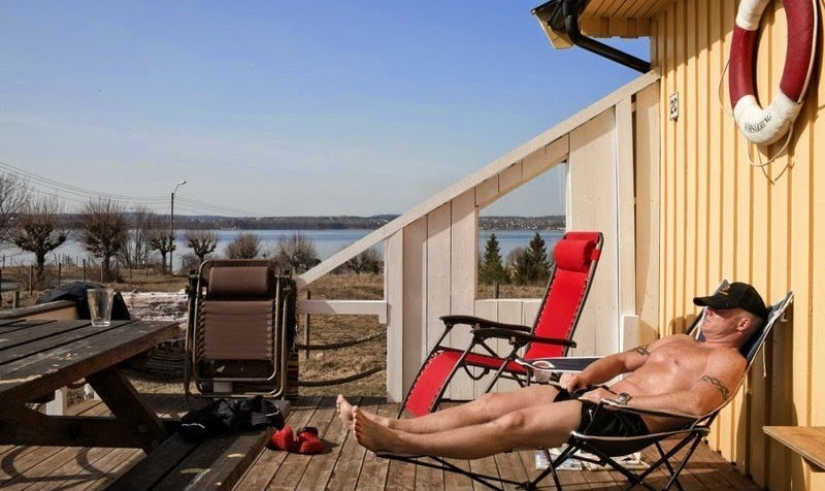
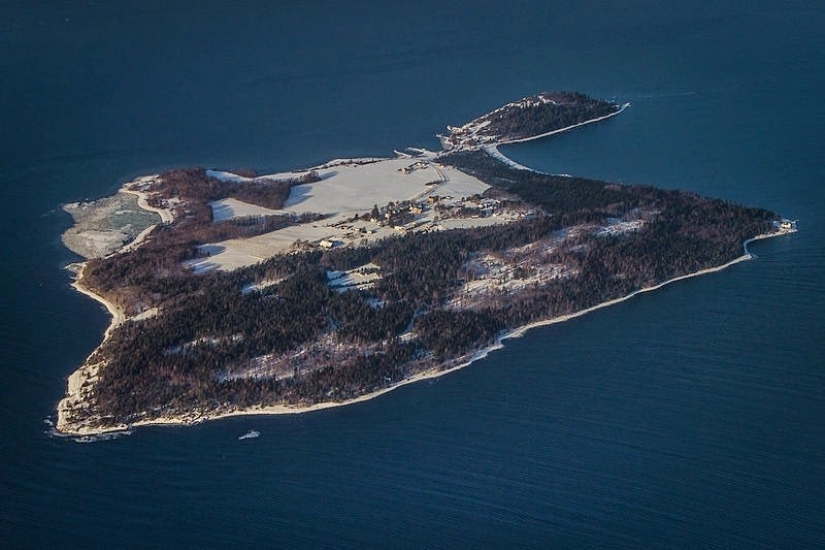
Located just an hour's drive from Oslo, the island of Bastoy is a picturesque place that can only be reached by water transport. There are several beaches, equipped tennis courts and even a sauna.
Murderers, rapists, drug dealers and fraudsters are gathered in the prison on this island. But there is a queue among Norwegian prisoners to get to the Bastoy. Here they are "resocialized" by working in the forest, in the garden and with pets. The prison in Basto is also the first "organic institution"in the world.
The Norwegian Ministry of Justice in 2009 ended a 10-year experiment on the "free detention" of prisoners in a prison on the island of Bastoy. The experience was recognized as successful, and now such institutions can appear in other parts of the country.
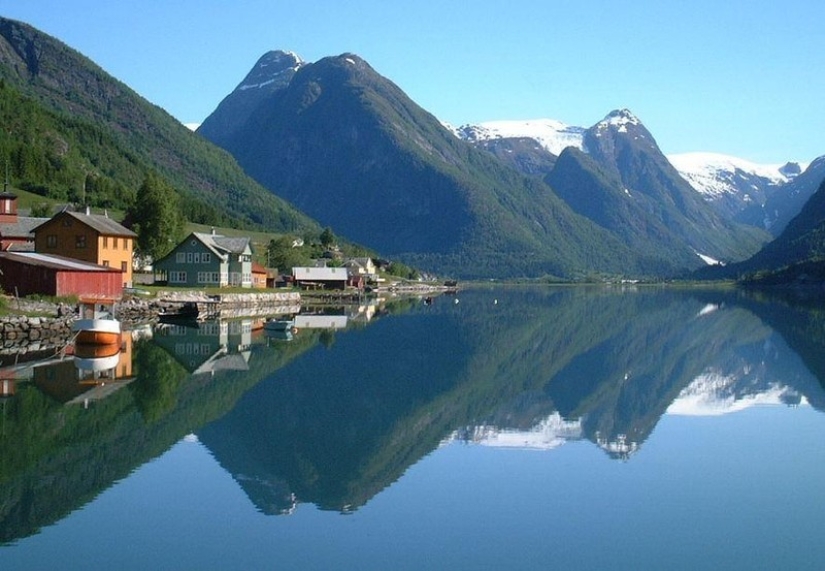
Instead of being behind bars, 115 prisoners of this amazing prison live in comfortable wooden houses.
The author of this experiment was a Norwegian scientist, criminologist Nils Christie. His theory is that every crime has two victims: the one who suffered from it, and the one who committed it. And the criminal deserves not only punishment, but also re — education-the very "re-socialization".
Bastoy Island is located in the Oslo Fjord. From the capital of Norway to it — 76 km, to the nearest settlement-the resort town of Horten-a little more than 2 km. The island itself has an area of 2.6 sq. km.Previously, there was one of the strictest Norwegian prisons for young criminals (see below photos of prisoners in the 1930s), and her parents frightened their naughty children.
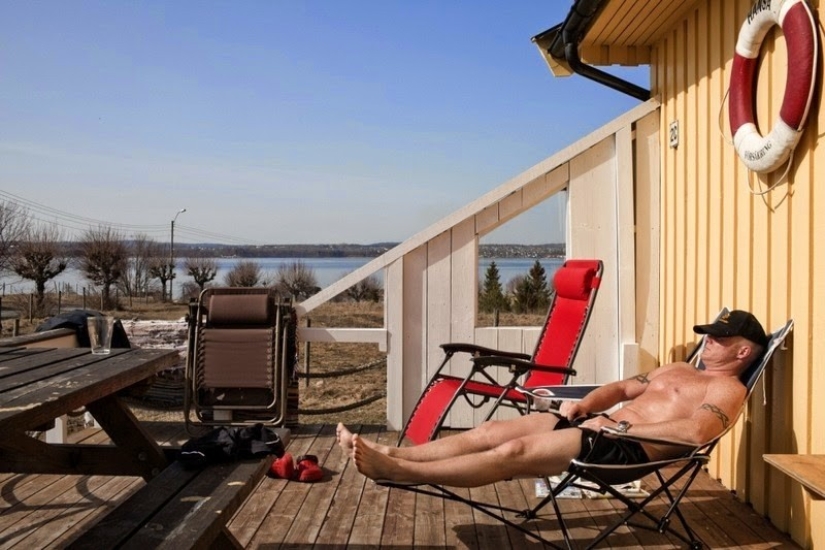
But what has never been on the island of Bastoy is barbed wire and angry guards with machine guns and shepherd dogs. And this is despite the fact that the most notorious criminals of all stripes live there: from drug dealers and fraudsters to rapists and murderers.
Today, Basta is called "The Island of Freedom for prisoners". Here sit the most brutal — by Norwegian standards-criminals: murderers, rapists, pedophiles, major fraudsters and drug dealers. There was also the only serial killer in the entire history of Norway — Arnfinn Nesset. He was the head doctor of a nursing home and, it is believed, poisoned 20 old people there with poison ("to stop their torment"). After 15 years of imprisonment on the mainland, he was sent to sit out the last 1.5 years on the Basto. After his release, the authorities corrected his passport to a new name and changed his appearance with the help of plastic surgery (to avoid discrimination by society).
At the beginning of 2011, 116 people were sitting on the island. The prison staff consists of 70 people, but only 5-6 employees remain on duty at night. All the jailers work here without weapons. During the 11 years of the existence of this prison, only five people escaped from the island, three of whom turned themselves in, and two were caught and sent to prisons on the mainland.
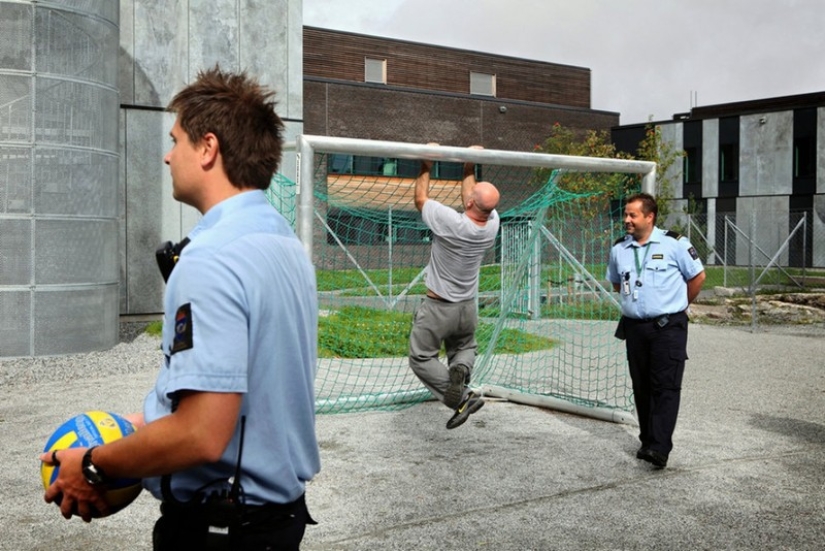
As for the regime of detention, the main duty of each prisoner is work. Everyone has a job where they must be from 8: 30 to 15: 30. Every day, the prisoners receive a salary of $ 10 and can spend the money on food at a local store, thus providing themselves with breakfast and dinner at will.
There is a queue of Norwegian prisoners in the prison on the island, and the lucky few are sent here to sit out the small remnants of their term (usually from 1 to 3 years). Why is it so attractive to prisoners?
On Basto, prisoners are kept "on the outside" — they live in cottages (1 cottage for 8 prisoners, each has its own room) and can safely move around the island. In Russia, such a place would be called a "colony-settlement" and they would be right. But-with a few exceptions - everyone is entitled to a vacation of 18 days a year. In addition, there is also a maternity leave of 21 days — when the wife or cohabitant has a child from a prisoner (visits with relatives are weekly, for 12 hours).
It is also important that psychologists always deal with prisoners, and the prison staff works on an equal basis with them. Work, by the way, is a mandatory element for prisoners, as well as a means of "re-socialization" and re-education. And all the work is done in nature. Norwegians (and especially the criminologist Christie) believe that agriculture and forestry are the best ways to beat the crap out of a person. There are 45 sheep, 22 cows, 10 horses, 230 chickens and 20 rabbits on the island. There are also plots with potatoes, vegetables and raspberries. Their lands are also an important element of self-sufficiency with food. One of the factors for which the experiment with the island prison was recognized by the Ministry of Justice as successful was the reduction in the cost of keeping prisoners by 2.5 times compared to other Norwegian prisons.
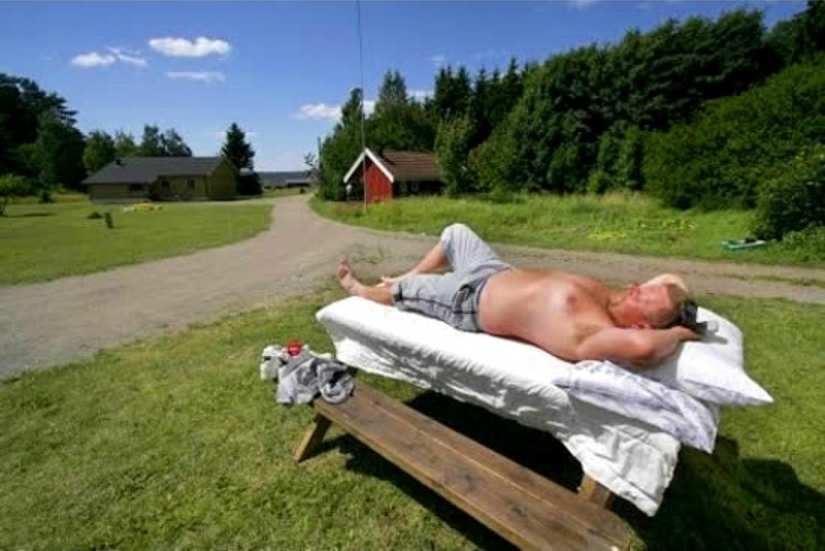
Lunch is mandatory for everyone, it is prepared by the camp cook — for both prisoners and guards. Also, prisoners are required to register several times a day. The purpose of the Bastoy Island prison is not to offend the good citizens of Norway by pampering criminals instead of punishing them, but to change them and allow them to return to society.
So, the state allocates 50 crowns a day (about 250 rubles) to each prisoner here. With this money, he must buy food for breakfast and dinner (lunch is at the expense of the prison, and the guards eat the same as the guards), household supplies, clothes, etc. You won't be particularly posh, especially considering the Norwegian high cost. But what is grown and made by the prisoners themselves is fairly divided into all according to their participation in the creation of products. As a result, every month a hardworking convict receives up to 10 thousand crowns (50 thousand rubles) here.
In addition to agriculture, fishing is an important industry on Basto — up to 100 kg of cod and haddock are caught daily, as well as the production of furniture from its own raw materials has been established. Care felling (when only old or diseased trees are cut down) provides fuel for heating cottages.
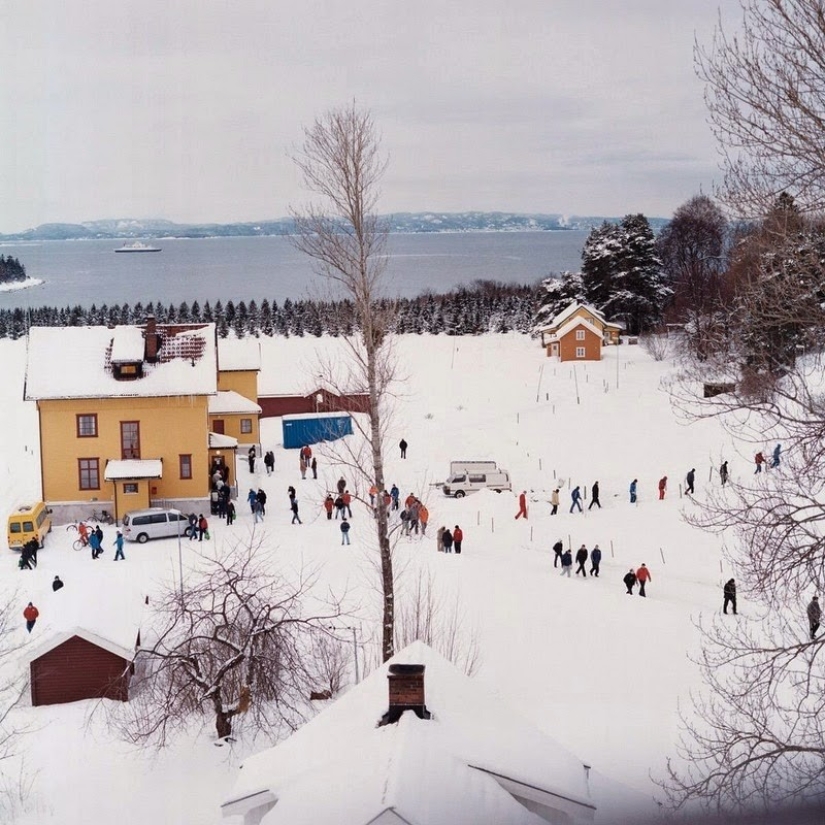
Prisoners are counted daily in the morning and in the evening.
In 2010, Bastoy became the first "organic prison"in the world. All waste (except plastic, which is prohibited here) is processed into compost. Fertilizers and plant protection products are only organic. Solar panels are installed, pallets for heating boilers are made from wood waste, all cars and tractors are converted to biodiesel (produced from rapeseed oil).
The ascent here is at 7: 00. Work begins at 8:00. 2-hour lunch break. The work ends at 16: 30. In the evening, a convict can do anything — read in the local library (there are about 10,000 books collected here), surf the Internet (although no more than two hours), watch TV (4 TV channels are allowed), play sports (without restrictions), play in a local rock band or theater circle. At 22:00 — lights out. Drugs and alcohol are prohibited on the island (weekly urine tests are given for the presence of drugs), for violation — sending to prison on the mainland.
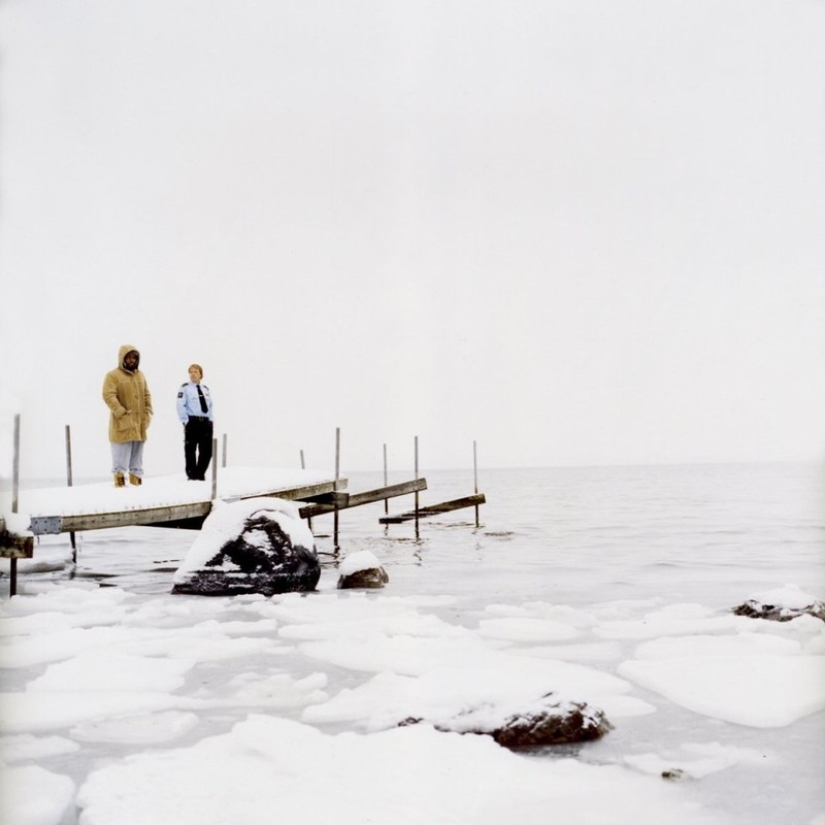
As amazing as it may sound, but the method of this fabulous prison works. According to statistics, 20% of criminals who have been in Norwegian prisons are re-found there a few years after their release. And of those who had the opportunity to spend time on the island of Bastoy, only 16% are re-convicted.
What is the matter? After all, in general, the Norwegian prison system is very humane (i.e. no less humane than on the island). So, there is a "waiting list for serving time" - about 20-25% of Norwegians who have received a sentence (mostly a small one-up to 5 years) are free until a place in prison is available for them. And all this time, the term is taken into account by them (as a result, 5% generally spend the term while at home). People who have served more than half of the sentence for serious crimes, and for light crimes-and from the very beginning of their imprisonment, can file a petition to leave the prison walls for freedom or study during the day (in 2/3 of cases, such petitions are granted; prisoners spend the night in prison). Minor crimes here are generally considered not by the court, but by the so-called "psychologist-conciliator". If the criminal realizes the gravity of his act, he is given a fine, a suspended sentence or even forgiven. In Russia, we will remind, for petty hooliganism, theft of more than 1 thousand rubles, death threats, negligence and other minor crimes, people receive real terms of 2-5 years. Once a year in Lillyhammer, the Minister of Justice and his deputies, members of parliament and a delegation of prisoners from each prison (50-70 people) sit in a mountain hotel for three days, where they jointly decide how to improve the lives of prisoners and re-educate them.
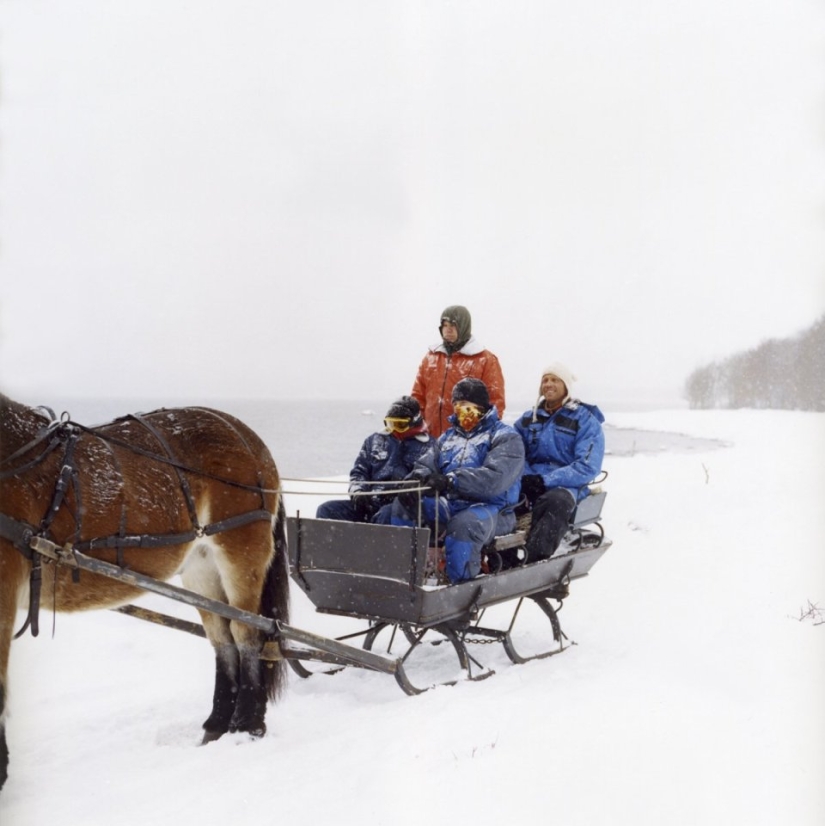
"The main thing is to create a situation in which prisoners can discover themselves from a new side, start to respect themselves again," says the head of the colony Arne Kvernvik Nielsen.
And yet, the Bastoy prison turned out to be more effective than other humanistic tricks of the Norwegian authorities. Criminologist Krist is sure that the secret of "re — socialization" is precisely in collective work on earth. Even at the very beginning of the experiment, he admitted that he was prompted to this idea by the records of the Seattle Indian chief from 1850. The Native American then preached to white people that they "broke away from nature, they want to subdue it, and not live in harmony with it."
"We give the prisoner a sense of harmony with nature. It turns away from violence, " Christie said.
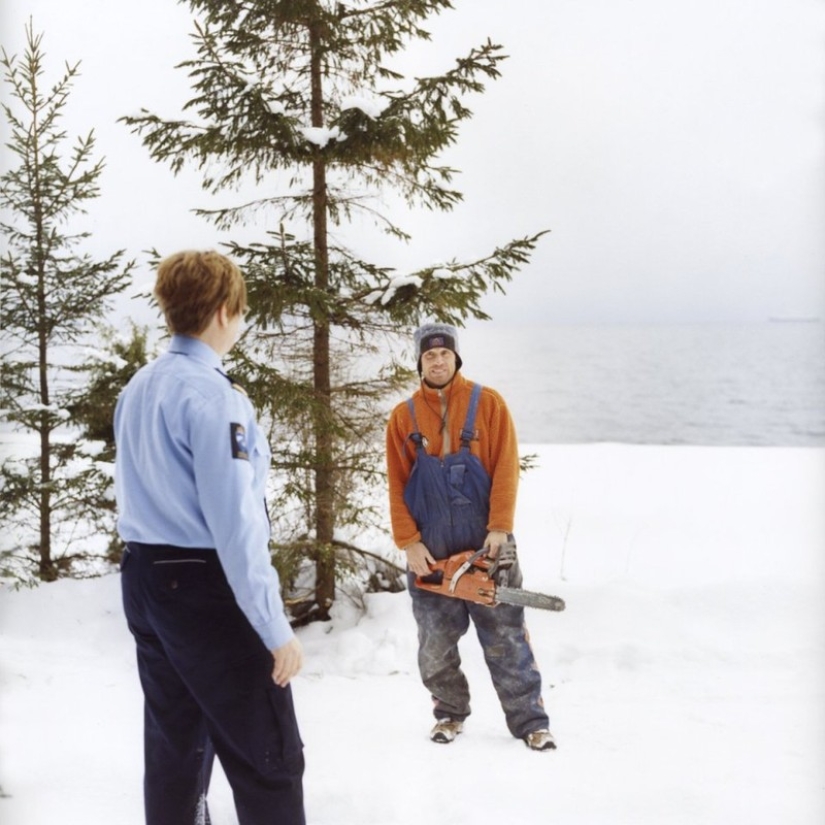
A prisoner (with a chainsaw) works with security guards in the forest on the island of Bastoy.
"But maybe it's also about the Norwegians themselves?" a Russian reader will ask skeptically. After all, in the Soviet-Russian camps, people regularly worked in nature — at logging sites, and as part of a team — with urks, lowered, "men" and other "hierarchical" representatives of the criminal society. And this did not particularly "resocialize" anyone. Probably, the feeling of freedom and free labor is also important (no matter how twofold it may sound when applied to the work of prisoners) — when its results are divided equally. And prisoners who do not want to live in such a society are sent to a stricter regime.
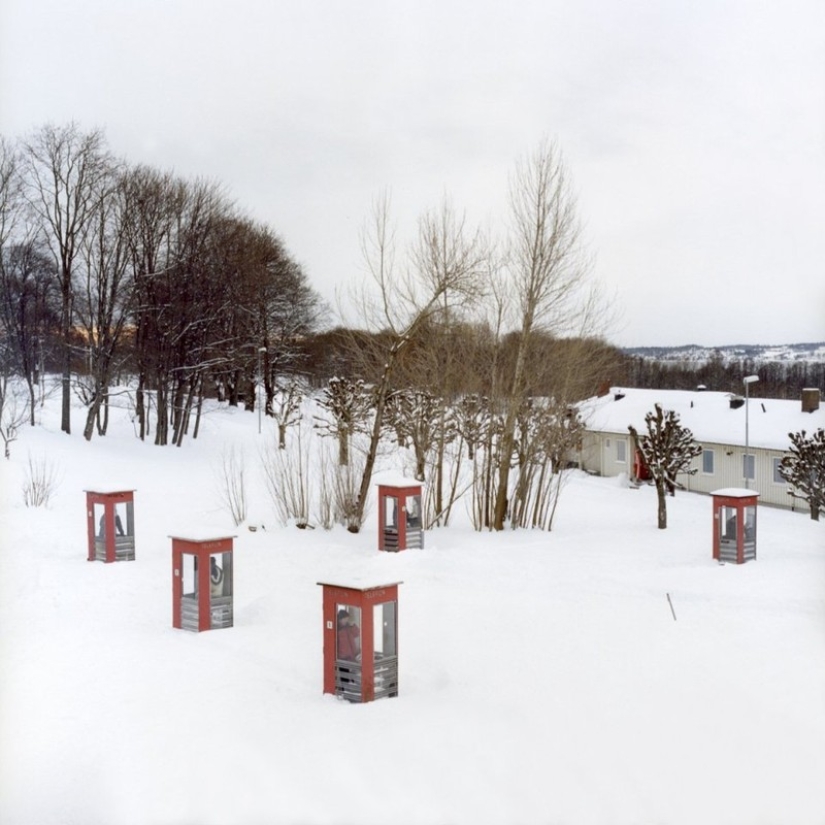
Telephone booths on the island. Prisoners are allowed to make phone calls twice a day, in the morning and in the evening.
Probably, we need another society that "supplies" prisoners to such prisons. In any case, it would not hurt to conduct an experiment on the type of Norwegian Bastoy in Russia. Fortunately, we still have enough islands, nature, and even reasonable people.
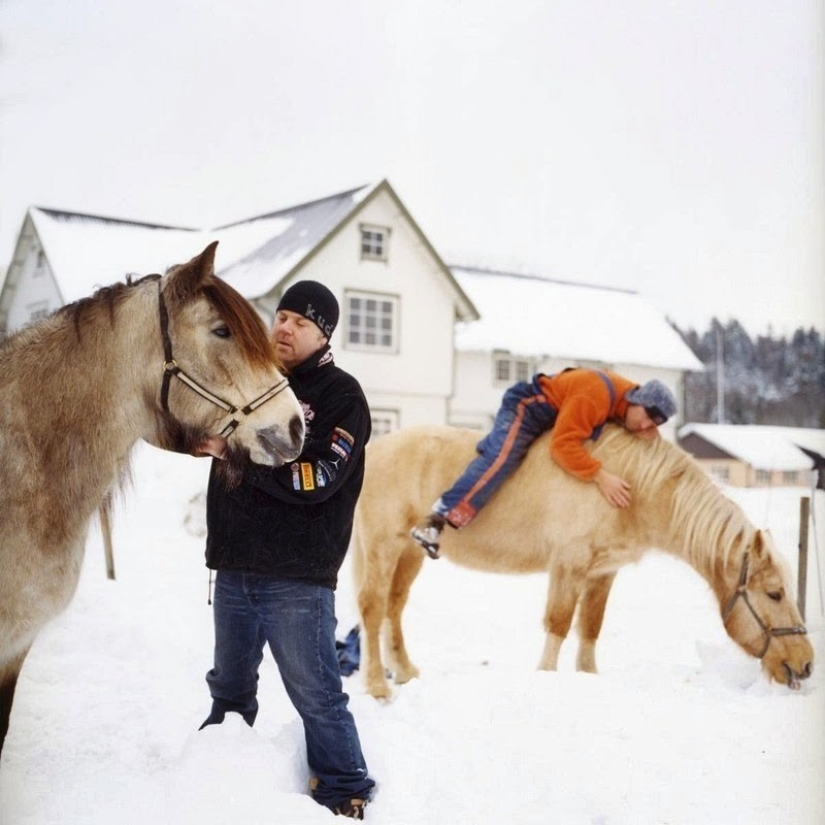
A prisoner accused of child abuse is working with a horse.
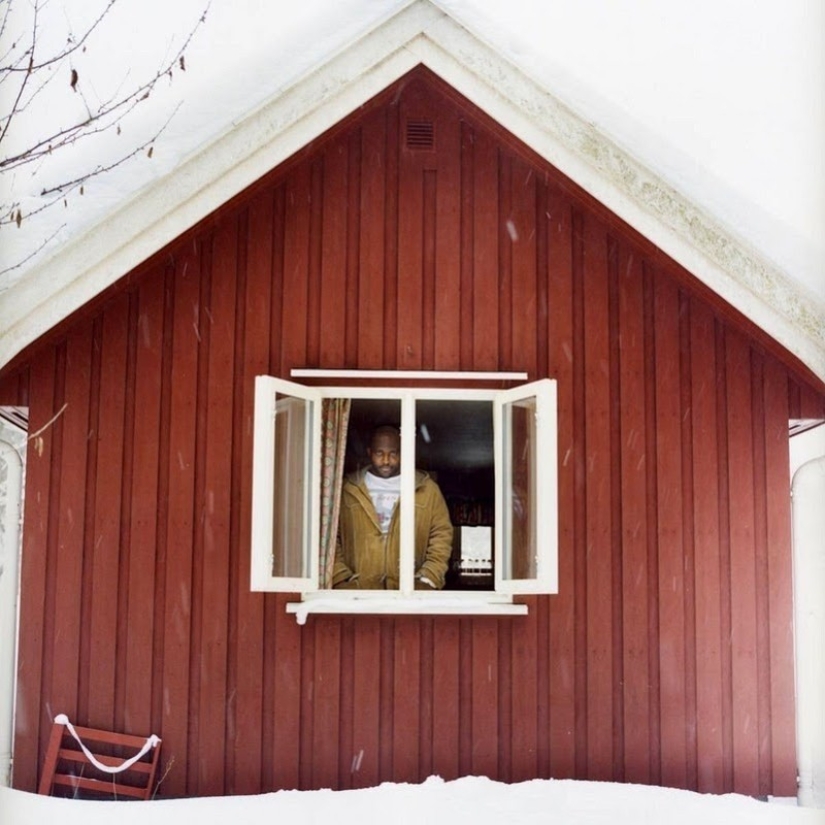
A Nigerian citizen has been convicted of drug abuse. He lives alone in his own house on the island. All other prisoners live in communal houses.
Keywords: Europe | Island | Norway | Prison | Conditions | Prisoners
Post News ArticleRecent articles

It is especially important to maintain a good mood, to watch less depressing news and not hang out in social networks. If the ...

It is easy to find a lot of data on serial killers from all over the world on the Internet. Of course, the most common stories are ...
Related articles

Have you noticed that often people who are about to spoil the air, raise their index finger up, saying " Attention, something is ...

Nikola Ciulic is a self-taught artist from Serbia. He has been seriously engaged in drawing for several years and has achieved ...

In the modern world, every person necessarily needs a place where he can retire, be with himself and his thoughts in silence, get ...

Popular folk names, as a rule, have a simple origin, but are associated with an interesting history. There are many examples, for ...